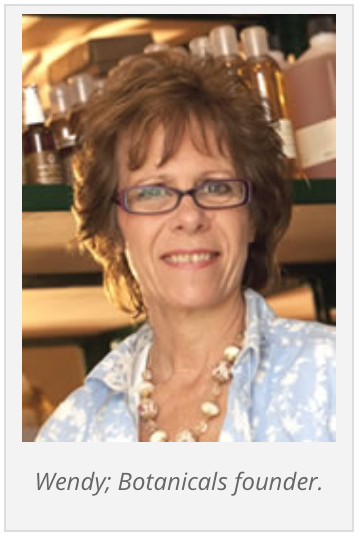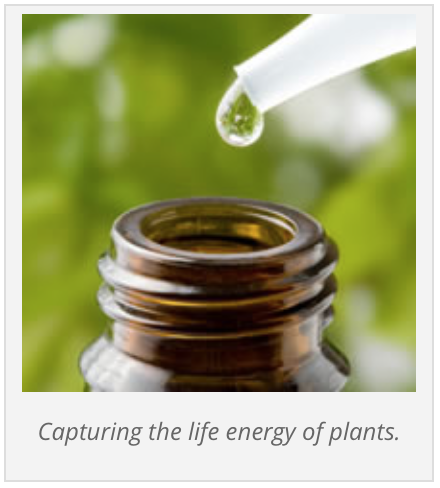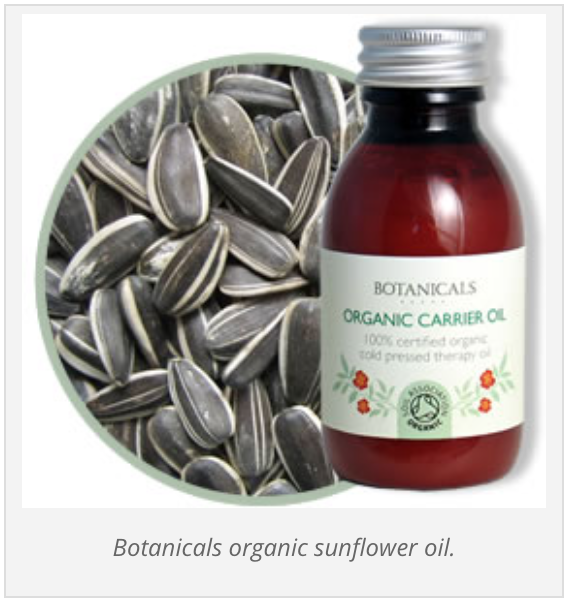Ingredients; organic vegetable oils
11th Oct 2012

I'm often asked about the ingredients we use here at Botanicals, and what makes them so special. I'm hoping to write a regular post on this part of our blog to provide more meaning to the list of ingredients that appear on our product labels. I’ve decided to start with organic vegetable oils. Sad to say, it's a subject that I'm particularly passionate about! First of all, I’ll explain where vegetable oils come from, and the fundamental and very important differences between ‘certified organic’ and ‘non organic’ oils.
Then I’ll cover the health promoting benefits of organic oils, and how they should be considered by any practitioner as an important part of the ‘holistic’ view (in terms of understanding not only the person, but also the synergy of the materials used in treatment). Vegetable oils come from the seed or nut of flowers, fruit and trees. (Nuts are simply ‘single seeded’ fruits with a protective hard shell.) The purpose of plants is to maintain the existence of its species by reproduction. And we know that given the right conditions, any seed will germinate. Chemistry shows us that the energy needed for germination emanates from the germ of the seed, with other parts of the seed providing a food store and protection. But science has yet to explain what the enery or ‘life force’ is that triggers germination, and where it comes from.

As well as life force energy, the nut or seed must also have concentrated amounts of stored energy, to promote growth once triggered by this invisible force. Every nut or seed therefore is a powerhouse of energy. Oil is extracted from nuts and seeds by two different methods. Firstly - the traditional method, used by organic producers - is by cold processing. The nuts or seeds are placed in a press, and the oil is literally squeezed out. The second method - used in large scale production - is by hot extraction, where heat - reaching up to 200 degrees centigrade - is applied to increase the yield. The waste produced from both methods is often re-processed using solvents. A procedure which is subject to even more heat.
Destroying the life force
Hot extraction destroys the life force of the oil, along with all the vitamins, minerals and fatty acids. This leaves them devoid of skin-enhancing benefits – in other words ‘dead’. (These are the oils that find themselves on supermarket shelves for use in frying food, and should not be used for skin care.)
Some oils are further refined to remove their natural odour or colour. The cosmetics industry generally uses refined oils, because the stronger colour and fragrance of unrefined oils can be too difficult to disguise in the finished product. My own view, as an organic formulator, is that unrefined oils are well worth the challenge.
Infused or herbal oils are produced differently, because the oil comes from the maceration (infusion) of botanicals in a vegetable oil (solvent). The flower or leaf of the plant is steeped for several weeks in the chosen vegetable oil (normally sunflower seed or olive). The oil acts as a solvent and draws, not only the essential oil, but also the other important fat soluble substances from the plant. The oil is then filtered, and the plant material composted.
An important consideration when choosing any oil for use in skin care, is the conditions under which it has been grown. Organic oils are grown and produced without pesticides or chemical fertilizers (the residues of which find their way into the finished oil), and they have not been genetically modified. They are produced in much smaller quantities, by specialist organic producers.

Creating synergy
Blending essential oils together to form synergies is well known in the practice of aromatherapy. And I believe that the same synergistic effect is achieved when blending vegetable oils.
I would urge anyone interested, or working in the field of aromatherapy or massage, to give equal weight to the therapeutic benefits of organic vegetable oils, as well as the essential oils they often carry. In this post, I am intentionally not going into detail about the chemical profiles and therapeutic properties of individual oils. This information will soon be published as a glossary on the Botanicals website. Meanwhile, for those interested in learning more about the art and craft of blending oils, there are some very good books available on the subject, and a wealth of information available on the Internet. Botanicals uses only 100% certified organic cold-pressed oils in our skin care products. As these are often difficult to obtain, we have made them available to therapists in bottles of 100ml to 5 litres.
Click either link to view our range of both organic carrier oils, and organic essential oils. (You will need to be logged in to the therapist section of our website to see them.)
